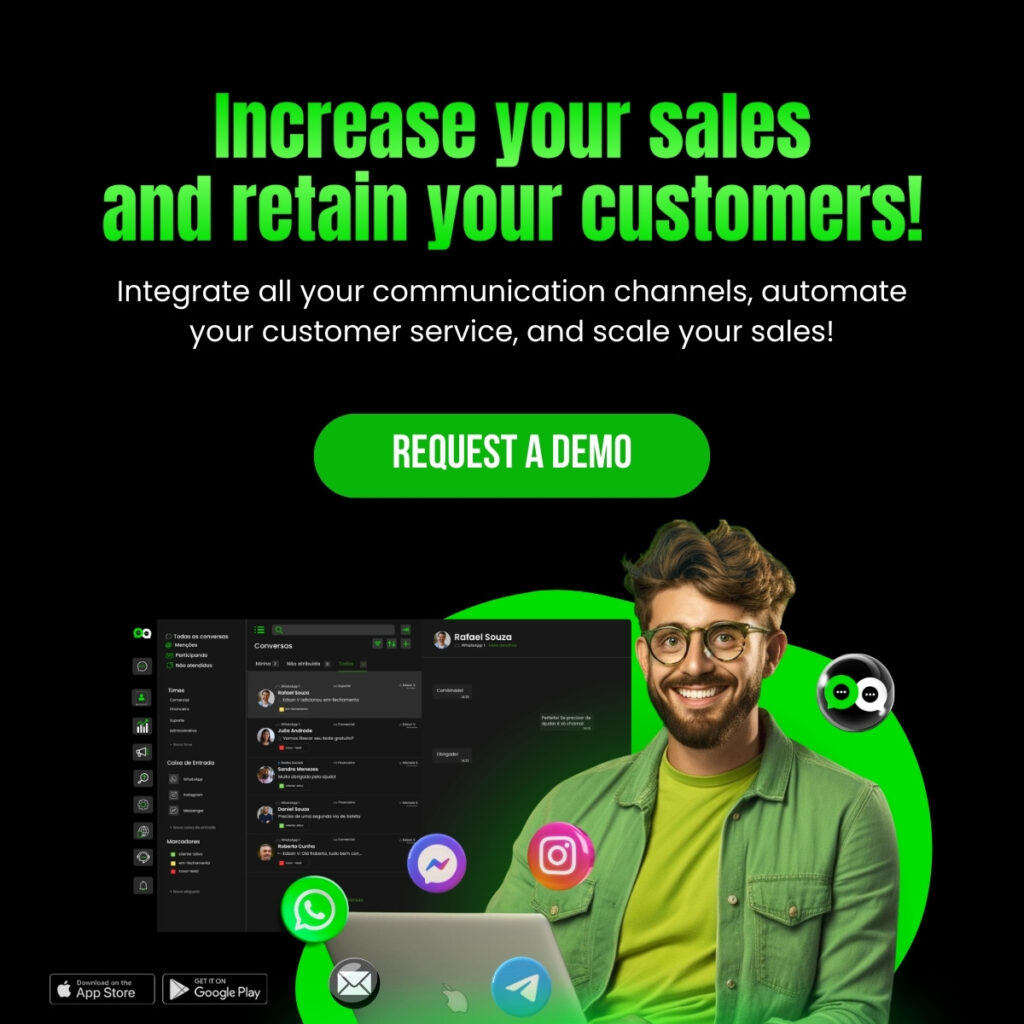ERP (Enterprise Resource Planning) and CRM (Customer Relationship Management) systems are essential for businesses aiming for efficiency and growth.
Both serve different purposes and are crucial in their own right. This article explores in detail what ERP and CRM are, their differences, benefits, and how to choose the best option for your company.
What is ERP?
To understand the importance of ERP in the business environment, it is necessary to explore its definition, history, and the main benefits it offers.
Definition
ERP, or Enterprise Resource Planning, is an integrated business management system that encompasses all areas of a company.
It automates and centralizes information from various departments such as finance, human resources, production, sales, and logistics.
The goal is to improve operational efficiency, facilitate decision-making, and promote integration between areas.
History and Evolution
ERP systems originated in the 1960s as MRP (Material Requirements Planning), focusing on inventory and production management.
Over time, they evolved to encompass all areas of the company, becoming ERP in the 1990s.
Today, ERPs are robust solutions that use advanced technologies such as cloud computing and artificial intelligence.
Benefits of ERP
The main benefits of implementing an ERP system include:
– Data Integration: Centralizes all company information, facilitating data access and analysis.
– Process Automation: Reduces manual tasks, increasing efficiency and reducing errors.
– Improved Decision-Making: Provides detailed reports and dashboards, aiding strategic decision-making.
– Scalability: Can grow with the company, adapting to new needs and challenges.
What is CRM?
While ERP focuses on internal management, CRM is more geared towards customer interaction.
Let’s better understand what CRM is, its evolution, and the benefits it provides.
Definition
CRM, or Customer Relationship Management, is a system that helps companies manage their interactions with current and potential customers.
CRM centralizes customer information, automates sales, marketing, and customer service processes, and facilitates building stronger and longer-lasting relationships.
History and Evolution
The concept of CRM began to gain traction in the 1980s with simple contact management systems.
With the evolution of technology and the internet, CRMs became powerful tools that incorporate data analysis, marketing automation, and artificial intelligence to offer a comprehensive view of the customer.
Benefits of CRM
The main benefits of using a CRM system include:
– Improved Customer Service: Centralizes customer information, enabling faster and more personalized service.
– Increased Sales: Automates and optimizes sales processes, helping convert more leads into customers.
– Marketing Efficiency: Segments and targets marketing campaigns more effectively based on customer data.
– Customer Loyalty: Helps build stronger and longer-lasting relationships, increasing customer retention.
Differences Between ERP and CRM
Understanding the fundamental differences between ERP and CRM is essential to determine which system is more suitable for your company.
Main Focus
– ERP: Focused on the efficiency and integration of internal processes.
– CRM: Focused on managing and improving interactions and relationships with customers.
Functions and Applications
– ERP: Covers finance, human resources, production, logistics, among others.
– CRM: Covers sales, marketing, customer service, and support.
Benefits and Outcomes
– ERP: Improves operational efficiency, reduces costs, and integrates data.
– CRM: Enhances customer satisfaction, increases sales, and improves marketing efficiency.
How to Choose Between ERP and CRM?
Choosing between ERP and CRM depends on the specific needs of your company. Here are some steps to help you make the right decision.
Evaluate Your Company’s Needs
Determine if your priority is improving internal processes and operational efficiency (ERP) or enhancing customer relationships and sales (CRM).
Consider Scalability
Ensure the chosen system can grow with your company and adapt to new needs over time.
Analyze the Budget
Consider the costs of implementation, maintenance, and training for each system. Evaluate which option offers the best return on investment.
Consult Experts
Talk to consultants and experts who can provide insights and recommendations based on their experience in implementing ERP and CRM systems in other companies.
Test and Demonstrate
Before making the final decision, test the available solutions on the market. Many companies offer free demos and trial periods to evaluate the functionality and usability of the system.
Nexloo: The Best and Most Comprehensive Tool on the Market
When it comes to choosing a complete tool that combines ERP and CRM functionalities, Nexloo stands out.
Let’s explore what makes Nexloo the ideal choice for companies seeking an integrated and efficient solution.
Advanced Features
Nexloo offers a wide range of advanced features that cover both ERP and CRM.
This includes financial management, human resources, production, sales, marketing, and customer service, all on a single platform.
Integration and Scalability
Nexloo easily integrates with other systems and can be scaled to meet the growing needs of the company.
This ensures that the solution grows with the company and adapts to new challenges.
Customer Support
Nexloo is known for excellent customer support, offering personalized and continuous assistance to ensure companies get the most benefit from the tool.
Customizable Reports and Dashboards
Nexloo’s reports and dashboards are highly customizable, allowing companies to monitor performance in various areas and make data-driven decisions.
Cost-Benefit
Nexloo offers excellent cost-benefit, providing a robust and comprehensive solution at a competitive price.
This results in a high return on investment by improving operational efficiency and customer satisfaction.
In summary, Nexloo stands out as the best choice for companies seeking an integrated ERP and CRM solution.
With advanced features, easy integration, excellent customer support, and great cost-benefit, Nexloo offers everything companies need to transform their operations and achieve new levels of success.
I hope this article has provided a clear and detailed view of the differences between ERP and CRM, how to choose between them, and why Nexloo might be the best solution for your company.
Stay tuned to our blog for more insights!




